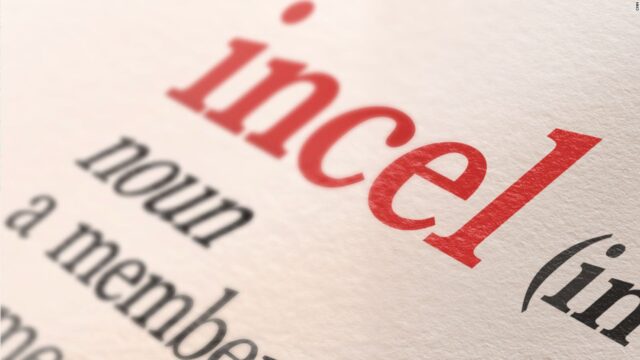The ‘Incel’ Psyop

Twenty years ago, the word “incel” didn’t exist.
More importantly, the notion of the “incel” as a person to be loathed and despised wasn’t alive in the popular imagination.
Before “incel,” men who were low-status, socially awkward, unattractive, or otherwise unappealing to women were called things like “nerd,” “geek,” “spaz,” “dork,” and “loser.” These are not flattering appellations, to be sure. But they do they carry the opprobrium that “incel” does.
In fact, more often than not, these pre-incel designations generated sympathy and even invited a sense of comradery. Implicit in their usage was an awareness that those who slung these epithets were being mean or cruel, and that those who were branded such things were being unfairly singled out for derision and were deserving of compassion.
Indeed, think of how many times you heard someone call himself a “dork” or a “loser” in a self-deprecating manner. Even rock stars did it. We were generally encouraged to deal kindly with these social outcasts. One branded a “nerd” was probably a good guy who just happened to get along better with computers than with people. One called a “geek” was in all likelihood a well-meaning chap who just happened to have an overly-intense interest in a particular series of anime, or sci-fi franchise, or musical genre. And a self-proclaimed “loser” was doubtless just a fellow down on his luck, or perhaps one needlessly suffering from low self-esteem.
Once low-status, socially-unsuccessful, unattractive men came to be regarded as “incels,” however, things shifted radically. Before the incel era, if a low-status man publicly shared his frustration with his failed attempts to find a girlfriend, he was commonly regarded with warmth and pity by others. Today, if a similar figure shares a similar sentiment, he is immediately hit with condemnation and calumny, and the “incel” epithet is invariably slung to punctuate the harangue: “What makes you think you deserve a girlfriend, incel?” “What exactly do you bring to the table, incel?” “Why are you so entitled, incel?”
Note how, in the rhetoric recorded above, the attitude of entitlement is now automatically presumed on the part of the so-called “incel.” Does anyone who wishes he had something that he doesn’t have—such as say, a girlfriend— necessarily believe himself to have a right to that commodity? Why, then, should such an unfair and unkind conclusion be reached of this particular individual in this particular case?
The absence of charity, and the tendency to twist the words of a man crying out in despair, so that his expression of heartbreak is disingenuously transformed into some kind of self-centered declaration of “entitlement,” is symptomatic of the attitude one is now pressured to take when addressing the low-status man. It marks a 180 degree turn from the past— even the relatively recent past— when we were commonly encouraged to regard such men with compassion, the same way that anyone with a speck of empathy would feel inclined to view anyone, of any conceivable demographic, who is suffering or in pain.
Today, the bullying of an already long derided, mocked, insulted, and shat-upon demographic— namely, low-status men— has absurdly assumed the sheen of.. virtue! When nerds, geeks, spazzes, dorks, and losers were made fun of two decades ago, such behavior was deplored by right-thinking people; the virtuous even rallied to the defense of those who were being picked on.
Today, by contrast, one is considered suspect if one defends so-called “incels”; conversely, one is ridiculously celebrated as a paragon of decency if he or she treats “incels” (i.e., low-status men, i.e, those who used to be called nerds, geeks, spazzes, dorks, and losers) with unwavering hostility.
The smuggling of “incel” into the vernacular, and the concomitant, relentlessly negative sentiments attached to that term, has affected a baleful transformation in the contemporary West. It couldn’t have come at a worse time, with a growing number of young men feeling isolated, alienated, and detached from what used to be known as “the American Dream.”
What w now have is the widespread societal approval of the “unpersoning” of a burgeoning demographic, one apparently becoming ever-more radicalized and increasingly smitten with the conviction that they have nothing to lose.
Think this’ll end well? Don’t count on it.
